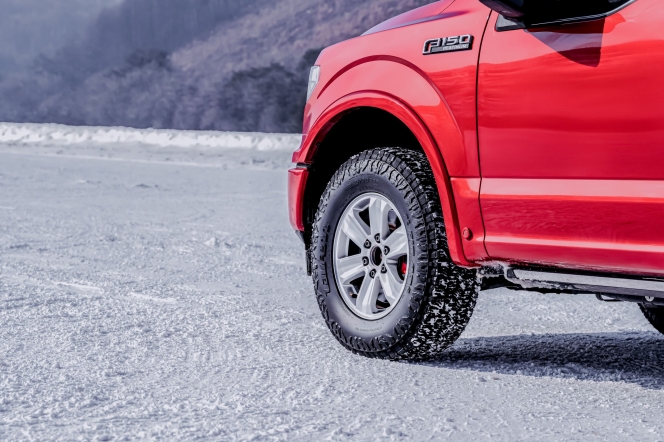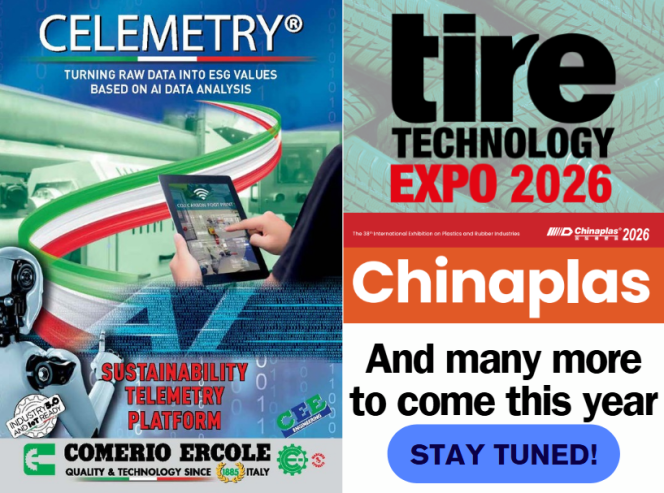Carbon-neutral and long-lasting tyres needed for sustainability
- By Ertugrul Bahan
- February 22, 2021

Large companies rated at some level tried to measure the risk factors of their products and resources starting in late 1990’s. They calculated or estimated the most critical parameters and assessed and listed the topics. They listed the predicted strategies to be overcome. One can guess, however, that none of them ever viewed a virus as causing such a pandemic that their predominant risk failed and they had to stop production for long days.
No risk means that there is no sustainability problem. Indeed, the risk concept for each industry should cover all aspects. The risk can be related to the global economy, a pandemic, local disruption, local toxic leaks, or a lack of resources in processes. The energy, the people, the water or the air we breathe can be additional risk factors for sustainability.
The ‘Material Recovery’ and Retreading are two milestones for recycling of waste tyres with increasing rates rather than energy recovery. The ‘Challenge is every tyre is to be recycled after removal’
In the tyre industry, current raw material sources must first be well managed unless alternatives are developed. Delivery channels are generally designed to take place in just-in-time transactions. There is already a good step towards weight loss. The main goal of sustainability is to ‘stay carbon-neutral.’ This is true, but it does not cover everything. The management of a ‘Zero Waste Factory’ is primarily focused. Collecting used tyres is a problem and factories should contribute. The challenge is: “Every tyre has to be recycled after it has been removed.”
One aspect of tyre recycling is retreading, which unfortunately only applies to large tyres like trucks, buses and OTR’s in many countries. However, the volume and mass of the tyres to be handled in small groups is much larger and, unfortunately, energy recovery is primary destination in many countries.
According to ETRMA, the tyre industry in EU countries has dramatically improved the sustainability of tyres at every stage from design to end of life. Weight reduction, voluntary commitment to eliminate PAH-rich oils from tyres, helping the chemical industry assess the risks associated with their products, and the Sustainable Natural Rubber Initiative are just a few of the recent examples of this commitment. According to the EU Landfill and Waste Equipment Directive (EOL), the national governments are obliged to address its recycling for safety, health and environmental purposes.
However, we know that recycling of waste tyres is increasing in Europe, but the rate of retreading is not, and that tyres are still widely used in energy recovery processes. The bright side, however, is that recycling rates in the European Union have globally reached 98% after the United States, where the recycling rate is still close to 80%.

So many technological advancements to serve for long-lasting tires have contributed to the sustainability of the industry
The annual world production of used tyres, which comprises about 1.4 billion units, is estimated at 2.5 billion units in 2032. This means that a mass of almost 100 million tons of old tyres must be recycled every year. The use of recycled materials in industrial products should be encouraged by the governments. This is in fact a great advantage for the world economy and ecology.
In the automotive tyre industry, So many technological advancements have contributed to the sustainability of the industry. The main concern was to have long-lasting tyres on the market. Shorter life means more production and more used tyres. Today, in many product groups, premature tyre failure in service is almost “zero” except sudden air loss and improper use. When looking for sustainable alternative raw materials, therefore, it should be taken into account that the current level of tyre performance should not lag behind.
Anti-block braking systems were initially optional. Wheel Torque Distribution Algorithms were so at the beginning. However, both eliminate a significant safety risk for almost all vehicle groups that have served for long lasting and even worn tyres.
The synthetic rubber polymers in crude oil used in the tyre industry have helped too much for long-lasting tyres. Their “reuse” in recycling and the search for carbon-free alternatives are more important today.
For Sustainability, Carbon Neutral and Longer-Lasting Tyres are needed. There is still a long way to go…
Crump rubber extracted from old tyres is widely used in road construction, sports and leisure in various institutions. Recycling in this respect serves the circular economy. However, it should be possible to use micronised rubber powder in new tyres that also replace oil and rubber-based materials.
If one day airless tyres become popular in the market, they will add durability by using less rubber and being puncture proof. The development of sensors, chips and labels that can be integrated into the tread groove of a tyre and provide access to real-time information on temperature, pressure and roadway configuration will increase the impact of self-inflating tyres. With run-flat tyres, this is a big step towards more “Longer-lasting” tyres.
Various technologies are being explored to take advantage of used tyres, including infrastructure, and to make new tyres. If thermo technology research is successful, carbon black converted from recycled tyres into new tyres will become a reality. The recovered carbon black reduces CO2 emissions during the carbon black recovery process by 81% and prevents deforestation.
Carbon neutral and longer-lasting tyres without compromising on safety are necessary which will take a hard work and a long journey.
Michelin Becomes Official Partner Of Rocket League Championship Series 2026
- By TT News
- March 03, 2026

Michelin has announced a strategic collaboration with BLAST, the organiser behind the 2026 Rocket League Championship Series (RLCS), which serves as the premier global tournament for the popular video game Rocket League. Through this agreement, Michelin becomes an official partner of one of the most energetic and widely viewed eSports properties on the international stage.
Rocket League itself enjoys immense global popularity, attracting several million active participants on a monthly basis. The RLCS season consistently draws tens of millions of views across the world, underscoring its significant reach. This move allows Michelin to deepen its involvement in the competitive gaming sector by associating with a high-profile series known for its passionate following.
The game’s core dynamic involves vehicles competing in a fast-paced arena where precision, control and rapid execution are paramount. These very attributes closely align with Michelin’s established heritage in mobility solutions and high-performance engineering, particularly its extensive background in motorsport. The partnership therefore represents a natural extension of the brand’s core principles into a digital environment.
By entering the world of the RLCS, Michelin seeks to enhance its connection with younger demographics and solidify its relevance within the digital spaces that are increasingly defining future trends and cultural habits. This initiative builds on a foundation of over 25 years during which Michelin has cultivated partnerships within the gaming and automotive simulation spheres, consistently applying its technological know-how to support both realism and superior performance in virtual driving experiences.
- Yokohama Rubber
- Yokohama ADVAN Tyres
- Nürburgring 24-Hour Race
- Nürburgring Langstrecken-Serie
- BMW M Motorsport
Yokohama Becomes BMW M Motorsport’s Official Tyre Partner For 2026 Nürburgring Events
- By TT News
- March 03, 2026

The Yokohama Rubber Co., Ltd., has entered into a new agreement to serve as the official tyre supplier for BMW M Motorsport, the division responsible for the brand's global racing endeavours. This collaboration will debut at the prestigious Nürburgring 24-Hour Race and throughout the Nürburgring Langstrecken-Serie in 2026.
This renewed partnership revives a historical connection between the two companies, who previously worked together on the same iconic circuit from 1980 to 1990. During that initial decade-long stint, their combined efforts secured two overall victories. After an interval of nearly four decades, they are reuniting for the current season to compete in the premier SP9 class, fielding the BMW M4 GT3 EVO. For this campaign, Yokohama will equip the vehicle with its high-performance ADVAN racing tyres, with the shared objective of capturing another overall win.

Beyond its tie-up with the BMW team, Yokohama Rubber continues its longstanding commitment to the Nürburgring. It will provide its tyres to numerous leading teams contesting both the endurance series and the 24-hour event this season. The company is focused on achieving an overall championship victory for a vehicle equipped with its YOKOHAMA brand tyres.
Franciscus Van Meel, CEO, BMW M GmbH, said, “We are excited to welcome YOKOHAMA as Official Partner of BMW M Motorsport for our Nürburgring programme. YOKOHAMA’s technical expertise and motorsport passion strengthen our drive for maximum performance and precision. Their support allows our team to focus fully on what defines BMW M Motorsport: pushing the limits on every lap. We look forward to a strong endurance season.”
Team: Schubert Motorsport
Class: SP9
Car: BMW M4 GT3 EVO
Tyres:
ADVAN A005 (for dry conditions); Sizes: front 300/680R18, rear 330/710R18
ADVAN A006 (for wet conditions); Sizes: front 300/680R18, rear 320/710R18
Race Schedule (as of date of this release)
March 14 (Sat): NLS Round 1
March 21 (Sat): NLS Round 2
April 11 (Sat): NLS Round 3
April 18 (Sat) –19 (Sun): Nürburgring 24-Hour Race (Qualifiers) , NLS Rounds 4 & 5
May 14 (Thu) –17 (Sun): Nürburgring 24-Hour Race
June 20 (Sat): NLS Round 6
August 1 (Sat): NLS Round 7
September 12 (Sat) –13 (Sun): NLS Rounds 8 & 9
October 10 (Sat): NLS Round 10
Second-Generation Laufenn X FIT AT2 All-Terrain Tyre Launched In US
- By TT News
- March 03, 2026

Hankook Tire has introduced the Laufenn X FIT AT2, a new addition to its all-terrain tyre lineup aimed at drivers who require durability and adaptability without compromising on everyday driving comfort. Positioned as an affordable option, this tyre is engineered to handle a mix of on-road and off-road conditions while delivering long-lasting value.
Building upon the foundation of its predecessor, the X FIT AT2 brings several performance upgrades. It features enhanced traction across varied landscapes, a 15 percent improvement in tread longevity and reliable handling in different weather conditions. The tyre is designed to fit a broad spectrum of light trucks and SUVs, with availability ranging from 15 to 22 inches to accommodate popular vehicle models in the market.
This launch reflects Laufenn’s ongoing strategy to diversify its offerings as it strengthens its presence in over 100 countries. Since its introduction in Europe, the brand has consistently expanded its range for both passenger vehicles and commercial applications, responding to shifting consumer needs. The X FIT AT2 reinforces this direction by providing a balance of rugged capability and composed road manners for those who frequently transition between highways and rougher terrain.
Engineered for resilience, the tyre incorporates a reinforced structure, including select sizes with three-ply sidewalls to resist cuts and impacts. Its tread design features directional and lateral grooves that enhance water dispersion and grip on slippery or loose surfaces. Additional protective elements such as offset shoulder blocks and rim guards help shield against debris and curb damage. A two-step deep sipe pattern promotes uniform wear, contributing to extended usability.
Certified with the Three-Peak Mountain Snowflake symbol, the X FIT AT2 offers dependable performance in dry, wet and snowy winter conditions. It comes with warranty coverage tailored to its sizing, offering 60,000 miles for P-metric versions and 50,000 miles for LT-metric options. With this release, Laufenn continues to round out its portfolio alongside existing lines such as the S FIT, G FIT and I FIT series.
KC Jensen, Vice President – U.S. Passenger Car and Light Truck Sales, Hankook Tire America Corp, said, “The X FIT AT2 represents the next step forward for the Laufenn brand as we continue to deliver practical, dependable solutions for everyday drivers who also want the freedom to explore off-road. Building on the success of the original X FIT AT, this second-generation tyre offers a stronger blend of durability, versatility and everyday comfort at an accessible value.”
Comerio Ercole To Showcase Calendering And Digital Solutions At Two Premier 2026 Trade Fairs
- By TT News
- March 03, 2026

Comerio Ercole is set to make a significant impact on the global stage in 2026 with its participation in two major industry exhibitions. The company will showcase its latest advancements at both Chinaplas 2026 and Tire Technology Expo 2026, highlighting a comprehensive portfolio designed to enhance precision, productivity and sustainability in polymer processing.
At Tire Technology Expo, Comerio Ercole will present integrated systems tailored for the tyre industry, focusing on high-performance rubber calendering and digital intelligence. A flagship solution is the TRIPLE 4-roll calendering unit. Its innovative "S" configuration provides remarkable flexibility by enabling the processing of both textile and steel cord, as well as the production of rubber sheeting, all within a single line. The system’s capability for simultaneous lamination ensures high precision and product stability while minimising defects. Downtime is a critical factor in tyre production, and the patented FASTEEL system directly addresses this. By automating the steel cord change process, it dramatically reduces changeover time from hours to minutes, allowing the line to continue running during preparation and thereby maximising plant availability and operator safety. Following the calendering process, the SUPERCUT system guarantees clean, precise transversal cuts for both steel and textile-reinforced rubber, integrating guillotine and high-speed rotary blades to minimise waste and streamline downstream winding.
Simultaneously, at Chinaplas 2026, taking place in Hall 2.1 at Stand C85, the company will place a strong emphasis on its patented HYDROPLUS concept for PVC and plastic calendering. This technology suite is engineered to deliver micrometric precision and robust process stability through advanced hydraulic controls. Central to this is HYDROGAP, a system that achieves exceptional thickness uniformity with high-resolution gap positioning. Complementing this are HYDROSAFE, which ensures rapid roll separation for ultimate protection, and HYDROTHERM, a feature that intelligently compensates for thermal expansion to maintain precise gap settings during fluctuating operational temperatures.
Beyond mechanical innovation, the company is driving digital transformation with its CELEMETRY and MINERV-AI platforms. CELEMETRY focuses on sustainability by converting production data into actionable insights for environmental reporting and energy optimisation. MINERV-AI captures and standardises operational expertise through artificial intelligence, supporting more effective maintenance protocols, training procedures and overall operational consistency. Through these combined efforts at both exhibitions, Comerio Ercole is demonstrating a holistic approach to advancing the plastics, rubber and tyre industries.







Comments (0)
ADD COMMENT